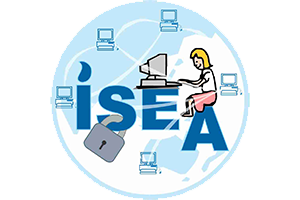How parents can help kids handle Social media smartly
In present scenario where children are "growing up digital," it's important to help them learn healthy concepts of digital use and to be socially responsible. Parents play an important role in teaching these skills. Social media has abundance of information and plenty of good things useful for everyone including kids and at the same time it accompanies many risks and things kids and teens should avoid. There are chances that they may end up making bad choices and put them at risk. Social media has a major role in the social life for many teenagers and children. But social media has risks as well as benefits. Parents need to interact with children and help them to get the best out of social media. To help your kids to be safe online is all about Awareness, Communication and Supervision.
What's Good About Social Media?
Social media can help kids:
- stay connected with friends and family
- enhance their creativity by sharing ideas, music, and art
- meet and interact with others who share similar interests
- communicate with teachers and fellow students
- volunteer or get involved with a campaign, nonprofit activity, or charity
- Sharing art work or music
- Exploring and expressing themselves
What's Bad About Social Media?
The other side of social media is a hub for things like cyberbullying, stalking and other questionable activities, illegal content etc. Without understanding the gravity of these issues, kids can unknowingly share more personal information online than they should. These include
- posting photos of themselves online or using their real names on their profiles
- revealing their date of birth and their interests
- posting their school name and the town where they live
- sharing links
- tagging photos and content
- remixing or changing existing content and sharing it.
This can make them easy targets for online predators and others who might harm them.
In fact, many kids say they have:
- Been contacted online by someone they didn't know in a way that made them feel scared or uncomfortable.
- Has received online advertisements that was inappropriate for their age.
- Lied about their age to get access to websites
Social media has many benefits that must be balanced with the risks it presents. Risks to be aware of include:
- Kids also can face the possibility of a physical encounter with the wrong person. Many apps automatically reveal the users location when they use these apps. This can tell anyone exactly where to find the person while using the application.
- Photos, videos, and comments made online usually can't be taken back once they're posted. It can be impossible to completely erase it from the Internet.
- Screening for harmful content on websites and apps varies widely.
- Content posted can be incorrect, harmful, or hurtful.
- Can be used to share harmful or adult content.
- Privacy controls over who can view or access posted material vary across apps, and many users are not aware of how to use them effectively.
- Apps that allow for real-time user videos “live streaming” can been used to show bullying, violence, suicide, and harmful acts as they are happening.
- Some apps that include location information can be used to get personal information, such as someone’s age, current location, or where someone lives.
- Apps that support telephone calls do not show up on a call log, so parents may not know who their children are talking to.
What Can Parents Do?
It's important to be aware of what your kids do online. What information they share and whom they make friendship with in social media? But questioning and intervening beyond an extent can isolate them and damage the trust the parent and child has built together. The key is to stay involved in a way that makes your kids understand that you respect their privacy and make sure that they are safe.
Take care of your Childs digital social life.
- Same parenting guidelines apply in both real and virtual environments.
- Try to know your child’s friends, both online and offline.
- Know what platforms, software, and apps your children are using, what they are doing online.
Set limits and encourage playtime
- Set limits to the use of digital devices or using internet. Unstructured and offline play stimulates creativity.
- Make playtime a daily priority, especially for very young children.
- Join your children in play whenever you're able.
Learn and play together, and create tech free family time
- Play a video game with your kids. It's a good way to demonstrate good sportsmanship and gaming etiquette.
- Share your own life experiences, perspectives and guidance as you play the game.
- Show children good online etiquettes. Limit your own media use. Set example for kids to avoid use of digital media for long hours.
- Keep family mealtimes and other family and social gatherings tech-free.
- Set example of not using digital devices just before sleep and make use of that time to share daily experiences.
Don't use technology as an emotional pacifier
Media can be very effective in keeping kids calm and quiet, but it should not be the only way they learn to calm down. Children need to be taught how to identify and handle strong emotions, come up with activities to manage boredom, or calm down through breathing, talking about ways to solve the problem, and finding other strategies for channeling emotions.
Don’t say ‘No’ to your teenager for using social media
In today’s scenario online relationships are part of typical adolescent development. Saying ‘No’ to social media will make them more curious and find out ways to know and use social media without your knowledge and putting them at greater risk. Social media can support teens as they explore and discover more about themselves.
- Keep a check your child’s behavior in both the real and online worlds.
- Make them understand that social media privacy settings do not make things actually "private" and that images, thoughts, and behaviors teens share online will instantly become a part of their digital footprint indefinitely.
- Turn off location services and instruct your child not to share their location with anyone through social media.
- Be friendly and always open to their concerns and queries to gain their trust to share what they feel.
Be aware of parental control options available with many of the social media Applications commonly used by kids.
How to manage ‘digital footprint’
- Teach them about their digital footprint and its impact that might have later in their life.
- Educate your child about, what to do if a friend posts an embarrassing photo of her, or how to talk with friends who have shared information that links back to her
The risks to children using social media are high for a simple reason—kids are among the most active users of the Internet.
How to protect privacy/Identity
your child can protect his privacy by explaining them:
- not to share personal information like phone numbers, location and date of birth with strangers online, or with people he doesn’t know personally
- regularly check privacy and location settings
- keep passwords and log-in details private and not share these with friends or strangers
- log out after using public computers
- Disable features like posting to multiple social media sites at once.
Reference: Stopbullying Gov

